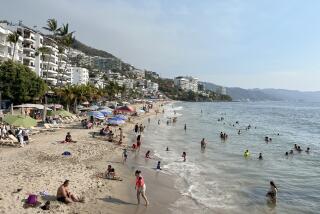Cardinal Avery Dulles, prominent Catholic theologian, dies at 90
Cardinal Avery Dulles, a former professor at Catholic University in Washington, D.C., who was born into a family of elite Protestant diplomats and became one of the country’s most prominent Catholic theologians, died Friday at an infirmary at Fordham University in New York. Stricken with polio when young, he had post-polio syndrome, which led to progressive muscular and pulmonary deterioration. He was 90.
FOR THE RECORD:
Cardinal Avery Dulles: An obituary of Cardinal Avery Dulles in Sunday’s California section said he was the first Catholic cardinal who had never served as bishop. He was the first and only American who was not a bishop to be named cardinal. —
Dulles, appointed to the College of Cardinals by Pope John Paul II in 2001, was the first academic to be named to the Catholic Church’s highest advisory council as well as the first who had never served as a bishop.
A tall, thin figure, Dulles was known for his unusual spiritual journey and came to be considered a calm statesman of Catholicism during a time of great turmoil.
Through more than 20 books and 800 articles, he articulated a conservative, if tolerant, case for Catholicism and the church’s positions on contraception, sexuality, the role of women and clergy sex abuse.
He served as a bridge between the Vatican and the more liberal American Catholic dissidents after the Second Vatican Council of the 1960s. In his later years, he was seen more as an advocate of orthodoxy and said church sanctions against priests charged in sex abuse scandals were too extreme.
He was the son of former Secretary of State John Foster Dulles, who served under President Dwight Eisenhower. His uncle, Allen Dulles, was CIA director from 1953 to 1961.
Cardinal Dulles wrote and spoke often of his conversion to Catholicism, a faith still looked at skeptically by many Protestants in 1940, when he joined the church.
Among the skeptics was his father, who was initially embarrassed about his son’s religious path but later reconciled with him.
Avery Robert Dulles was born Aug. 24, 1918, in Auburn, N.Y., and grew up in a patrician Presbyterian family. His grandfather was a Presbyterian minister.
Dulles, who wrote about his spiritual journey in his autobiographical “A Testimonial to Grace” (1946), considered himself an agnostic when he entered Harvard College in the 1930s. He was drawn to Catholicism by his readings of the poet Dante Alighieri and the Catholic philosopher St. Thomas Aquinas.
After graduating from Harvard in 1940, he served in the Navy during World War II and attended Harvard Law School for a few semesters. He was ordained a Jesuit priest in 1956.
He received a doctorate in theology in 1960 from the Pontifical Gregorian University in Rome and taught at Woodstock College, a now-closed seminary in Maryland, from 1960 to 1974. He was a theology professor at Catholic University from 1974 to 1988.
He wrote and lectured on many topics relating to Catholicism, with a specialty in ecclesiology, or the mission of the church in the world. Through his teaching and writing, Dulles became “the United States’ preeminent theologian,” Washington Archbishop Donald Wuerl said in a statement.
Dulles was at Catholic University when the Vatican disciplined many theologians who publicly disagreed with church authorities on a host of issues, including contraception, premarital sex, abortion, homosexuality and euthanasia. Dulles sat on a faculty committee that defied the Vatican by recommending against the removal of a dissident theologian, but he did not speak out publicly against the church.
He said he opposed the punishment of dissidents but could not support theologians and priests who routinely went against the church’s teachings. His goal was to unify Catholics, he wrote, and to be a liaison between the Vatican and more free-thinking theologians.
After retiring from Catholic University, Dulles joined the faculty at Fordham University, where he taught until last year.
He had no immediate survivors.
Boorstein writes for the Washington Post.
More to Read
Sign up for Essential California
The most important California stories and recommendations in your inbox every morning.
You may occasionally receive promotional content from the Los Angeles Times.









